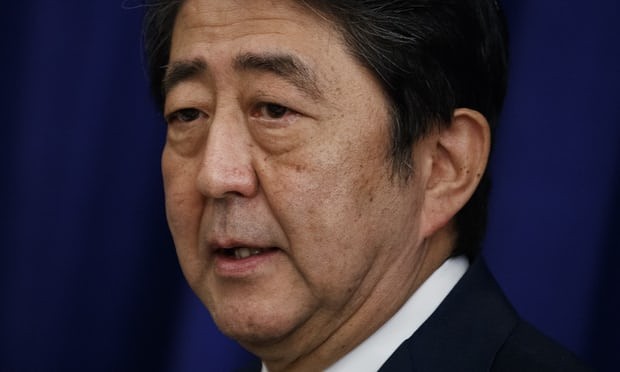Prime Minister Shinzo Abe calls for early election
Hong Van -
(VOVWORLD) - Japanese Prime Minister Shinzo Abe has approved a resolution to dissolve the Japanese parliament’s lower house paving the way for a snap election for next month. Abe is maneuvering to secure a stronger mandate with Japan facing numerous challenges.
 Shinzo Abe is ahead in the polls. Photograph: Evan Vucci/AP Shinzo Abe is ahead in the polls. Photograph: Evan Vucci/AP
|
Prime Minister Abe on Monday called for a snap election saying this will not keep the Japanese government from responding to North Korea’s threats. He promised to increase pressure on North Korea until it ends its nuclear weapons program.
Advantages used
A snap election is a smart move with the government’s popularity rising and opposition parties unstable. According to a weekend poll by the Nikkei business daily, 44% of voters would back Mr. Abe’s Liberal Democratic Party in a general election. Only 8% said they would vote for the main opposition Democratic Party. Abe’s approval has risen from about 30% in July thanks to the cabinet reshuffle in August, the government’s responses to North Korea’s missile and nuclear tests, and the recovery of Japan’s economy. The latest statistics show that Japan’s GDP increased 2.5% from March to June, much more than was forecast. The opposition Democratic Party has been suffering low approval and disarray.
Challenges ahead
Japan is now facing the major challenge of an aging population. Prime Minister Abe has said ageing and a shrinking population is a national crisis which has pushed Japan into a labor shortage. The government’s 2017 economic and fiscal report shows Japan has one of the oldest populations in the world, with 28% of its population being over 65.
Japan’s public debt increased to a record high 9.4 trillion USD in fiscal year 2016, a reflection of rising spending on social security as the population ages. Economists warn of an economic crisis unless Japan scales down its public debt.
Slow economic growth is another challenge. Japan’s economy in the last 6 quarters has kept growing, but the growth is slower than other economies in Asia. The Global Competitiveness Report of the World Economic Forum for 2017-2018 shows that Japan’s economy falling from 8th to 9th place while other Asia Pacific economies have jumped up in the ranking. The fall was due to Japan’s growing public debt, prolonged deflation, and inflexible labor market despite high quality infrastructure and a skilled labor force.
Dissolving the Lower House and calling for an election one year earlier than planned shows Abe’s intention to strengthen his government and fulfill the internal and external goals he set when he resumed power.
Hong Van